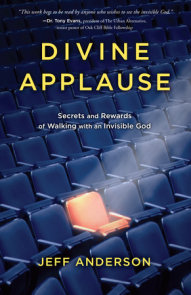READERS GUIDE
Come Closer: A Call to Life, Love, and Breakfast on the Beach contains multiple application tools at the end of each chapter. Still, sometimes it helps to have additional questions and journey-deepening suggestions to enrich personal study and application, and to make leading or facilitating a small group, book club or Bible study group easier.For a seven-week study, combine two chapters for the first 6 weeks, and then 3 chapters for the final session. For a five-week study, combine three chapters for each session. Don’t worry! There will be ample material to use during your meeting time. Trust the Holy Spirit to fill in any gaps, silence, and let your members learn to be at peace with that waiting.
There are three sets of resources for your use. Use the questions below in combination with the application elements at the close of each chapter, which can be implemented with the suggestions in “The Girlfriend’s Guide” at the end of the book Come Closer.
General Questions to ask at each session:
1.What stood out for you in this chapter?
2.What Scriptures spoke to you? In what way?
3.Where did you sense God tugging at your heart?
4.What emotional responses did you experience?
5.What will be different today? Tomorrow?
“Come Closer” Questions
Work through the questions at the close of each chapter, in the section called “Come Closer”, to take your group deeper into the truth of the Scriptures and the transforming possibilities there.
Study Guide Questions
To further deepen both the study and the experience, use the questions included below. Studies show that people learn best through participation and interaction, and Come Closer and Come Along are both participatory, application-oriented books and guides. The questions are not intended for a lecture style format, but are most helpful in a facilitator style, encouraging people to interact with the Scriptures and the Christ of the Scriptures.
Questions and Topics for Discussion
1. Chapter 1: Come for Abundance
“I came that they may have life, and have it abundantly.” John 10:10b
1.Who is the most alive person you know? What is attractive about that person? When have you felt the most alive, and when don’t you?
2.Re-read John 5:1-15. Where do you notice death, the facets of death? How does Jesus challenge death? Read John 5:16-18. What reaction does Jesus get? How do you see the same reaction when you challenge death?
3.Compare the John 5 passage with Matt. 16:25. How does what you cling to, prohibit life?
4.Read Galatians 2:20 out loud (even if you are alone). Let the words sink into your soul. What difference will Jesus’ promise make for you?
2. Chapter 2: Come from Death
“Lazarus, come forth!” John 11:43
1.In chapter 1, we find Jesus offering life, and now we plunge into the death of Lazarus. This is reality, isn’t it? We seek life and then death confronts us at every turn. When do you see that?
2.When do you feel abandoned by Jesus, like Mary and Martha, who said, “If you’d been here, this wouldn’t have happened”? (John 11:21, 32) You expect life and death shows up instead? What do you do to fight for life?
3.When I encountered Jesus’ tears at Lazarus’s death, it struck me that Jesus was mourning more than the loss of his friend. [Some scholars even told me that Jesus wasn’t really mourning, and I had to protest to keep this part of the book’s text.] What facets of grief do you see? When have you felt Christ’s sorrow and grief for you? How does that provide solace?
4.John 11:25-26 invites us to enter into the juxtaposition between life and death. When do you believe Christ’s promise, and what difference does it make for you?
3. Chapter 3: Come, Follow Me
“Looking at him, Jesus felt a love for him and said to him, ‘…come, follow Me.’” Mark 10:21
1.What is your version of the “But Mom, it followed me home!” story?
2.In Chapter 2, we see Jesus’ compassion in his grief. Here, in Mark 10:17-29, we see Jesus loving in another arena. In what ways is his love evident?
3.Read Lev. 19:2. Compare to Lev. 22:32. How do you define holiness? When are you tempted to substitute rule-following for relationship? For holiness? How does that show up for you? How does this fit in with the wealthy man’s request?
4.What does “follow me” look like for you? Where does it challenge you? How does Eph. 1:3-4 relate to this passage from Mark?
4. Chapter 4: Come and See
“Rabbi…where are You staying?”… “Come, and you will see.” John 1:38-39
1.What is a hospitality story where you were surprised by guests and embarrassed by the state of your home (or your hair…)? How likely are you to host an impromptu party?
2.Jesus says, “Come and see.” What would you have to do, if you invited someone else to “come and see” your life, your heart, your thoughts?
3.Read John 1 and trace the ripple effect of Jesus’ invitation to “Come and see.” What stands out to you?
4.Where are you most “at home”? How can you make your heart more and more Christ’s home? (See John 15:1-10)
5. Chapter 5: Come for Healing
“I will come and heal him.” Matthew 8:7
1.When do you “play church”? Do all the right things, sing all the right songs, say all the right words, but still feel like a liar, or paralytic, or half-alive? I think there is value in doing the right thing even when you don’t feel like it, knowing that the structure provides the possibility for God to enter into your hollowness. But when does that become pretending, and what happens then?
2.How do you handle constant demands on your time, incessant intrusions and neediness from others? Read Matthew 8. How does Jesus handle them?
3.In Matt. 8:8-9, how does the centurion’s response constitute faith? When death is winning, how do you respond?
4.Consider your own areas of paralysis. What are they? What will it look like for you to “walk in newness of life” (Romans 6:4)? (Don’t you love that action word? Consider each word in that verse for emphasis and application.)
6. Chapter 6: Come for Relief
“Come to Me, all you who are weary and heavy-laden, and I will give you rest.” Matthew 11:28
1.What goofy things have you done when you were sleep-deprived? (Two of my examples: drooling over my notebook in my 8 am Psych 101 class and then discovering crazy words and writing in my notes; falling asleep and snoring waiting for a doctor–the nurse had to jiggle my shoulder to awaken me in the waiting room!)
2.Compare Matt. 11:28-30 to Mark 6:31, and then notice the context in Mark 6 (v. 30-44). How do the disciples find relief, ultimately, in this Mark passage?
3.What negative side effects result from your weight-bearing, heavy-laden lifestyle? What happens if you keep it up for too long? What don’t you believe about Jesus’ words?
4.Read Galatians 5:1-6. Where do you experience slavery from this loaded life? How does Paul’s message compare with Christ’s?
7. Chapter 7: Come When You’re Lost
“For the Son of Man has come to seek and to save that which was lost.” Luke 19:10
1.What’s the most frustrating item you’ve ever lost? How about a lost relationship? Re-read Luke 19:1-10. What reactions do you have to Zacchaeus? The crowd? Jesus? What has Zacchaeus lost?
2.This is the only place in the New Testament using the term “chief tax collector” (v.2). Zacchaeus oversaw a group of tax collectors and gathered a hefty commission. Tax collectors bid to collect taxes for the Roman government, and tacked on their own surcharge (Net Bible, p. 1844, #18, 2001 edition), so Zacchaeus likely double-dipped. The Jews considered tax collectors to be traitors, so the crowd’s reaction to Jesus heading to Zacchaeus’s house is no surprise.
3.What relationship might be possible between the tax collectors’ reaction to John’s words (3:10-13) and Zacchaeus’s eagerness in 19:1-10? Notice Jesus’ urgent and emphatic words in v. 5, and the fact that Jesus knows the tax collector’s name. What application do you make of this?
4.How did Zacchaeus get found? Consider Psalm 32:5-7 in conjunction with the tax collector’s story. What does this mean for you?
8. Chapter 8: Come for Adoption
“I will not leave you as orphans; I will come to you.” John 14:18
1.When has someone truly comforted you? A group of friends “adopted” me, and at a monthly meeting I fell apart emotionally. One woman gathered me in her arms and just held me, patting my head and shoulders, and the others touched me and prayed over me. I felt so loved. They didn’t solve my problems, but they listened and cared, allowing me to cry, trust God, and move forward.
2.Compare Jesus’ words in John 14:18 with Zeph 3:17, Is. 30:18-19, Is. 66:11-13. Where have you seen the tenderness of God’s love as like a parent, experienced the comfort of the Holy Spirit?
3.When has someone offered you “Twinkie-words” when you needed deep comfort and direction? When have you turned away from your Abba because God didn’t act in a way you thought appropriate?
4.Compare our passage in John 14:1-21 to Gal. 4:3-6 and 2 Cor. 1:3-5. How can you combine these truths into application into your own life?
9. Chapter 9: Come for Help
“When the Helper comes…that is the Spirit of truth who proceeds from the Father.” John 15:26
1.When I was growing up, I loved the “helpers” on TV: Alice on “The Brady Bunch”, “I Dream of Jeanie” with her magic bottle, Samantha on “Bewitched”. Perhaps some of my enthusiasm was related to a child’s natural powerlessness. What or who were some of your favorite “helper” characters, and why?
2.In what ways have you recently found God to be your helper? When has God helped you through human hands and feet?
3.King David is considered one of the greatest leaders of all time, and yet the Psalms are filled with his pleas for help. The word in the Hebrew typically means to “beg, cry, plead for help or relief”. And yet, we have this silly notion that good Christians don’t ask for help…how does this fit in with your paradigm and way of living?
4.I still think a maid would come in handy, or at least Dr. Seuss’s giant, do-everything machine. How does the passage in Titus 3:4-6 relate to our need for help, and how will you move into that help?
10. Chapter 10: Come for Acceptance
“Permit the children to come to Me…for the kingdom of God belongs to such as these.” Mark 10:14
1.What story ranks highest in your misfit stories? One wintry day, as a mother of teens, I was almost dressed when the high school called. To zip over quickly, I pulled on ancient fuzzy hideous snow boots, tucked in my equally decrepit black sweats, and ran. Coat, hair, makeup–let’s leave it to imagination. My timing couldn’t have been worse–passing period, with my kids and their cool friends changing classes, clogging the halls, and there’s Mom flumping down the hallway.
2.Jesus’ words charged, and changed, society. More than ever, his enemies hated him and his friends loved him. To bequeath an entire kingdom to children made no sense to anyone, especially if half the children died by age 12. How do Jesus’ words in this passage impact you? What pains can you take to him, for healing, acceptance?
3.Who is unacceptable in your life? How can you love that person? What will have to happen?
4.How is Jesus able to make a commandment like John 13:34-35? How are you able to fulfill it?
11. Chapter 11: Come for Light
“No one lights a lamp and puts it in a place where it will be hidden, or under a bowl. Instead, he puts it on its stand, so that those who come in may see the light.” Luke 11:33
1.The world began in darkness (Gen. 1), and it was against that backdrop that the Trinity created the light. Without darkness, it is hard to appreciate the benefits of light. Read John 1, and consider the contrast between the dark and the Light.
2.Jesus is called the Light of the world (John 8:12), the rising sun (Luke 1:78-9), the morning star (2 Peter 1:19). What does this mean about Jesus? What does mean to you?
3.When have you “sat in darkness and the shadow of death”? (Luke 1:79) What put you there? (a situation, relationship, event?) How did you move toward the Light, and how did that dark time impact you? Others?
4.The word light in Luke 11:36 means transparency: nothing to hide; vulnerable, clear, straightforward. Compare with Eph 5:8, 1 John 1:5-7. What does this look like for you? Where do you see growth, transformation as a result of living in the Light?
12. Chapter 12: Come for Thirst
“If any man is thirsty, let him come to Me and drink.” John 7:37
1.When’s the last time you said, “I’m dying of thirst”? I just thought it, and ran for my water glass. I’m probably not dying, and I’m thirsty mostly because I ate a bunch of chocolate covered peanuts. How well do you think we understand real thirst in our world?
2.The fact that Jesus was actually thirsty during his earthly life reminds us acutely of his total humanity. What do you think of his words in Matt. 25:35? How is it possible that Jesus thirsts through others who are thirsty? Put this in context with the number of water bottles we buy and throw away on a regular basis, many of which are bottled in foreign countries where the workers themselves are thirsty and do not have clean water to drink. What are some practical ways to help alleviate others’ thirst, both physically and spiritually?
3.Jesus says, “Blessed are those who hunger and thirst for righteousness” (Mt 5:6). What does this mean for you? For your small group or church?
4.How does the Psalmist handle his thirst in Psalm 63:1, 3-5? How about you?
13. Chapter 13: Come for Breakfast
“Jesus said to them, ‘Come and have breakfast.’ Jesus…took the bread and gave it to them, and the fish likewise.” John 21:12-13
1.List your top three greatest failures. What happens within you when you think of these? Don’t forget the founder of Amazon.com’s claim, “Failure is part of the plan.” How do you see this?
2.How might the world, then and now, consider Jesus a failure, socially, politically, relationally, financially? How did Jesus overlook people’s opinion? God has a no-fail policy. Check out these Scriptures: Zeph. 3:5; Josh 23:14; 1 Cor. 13:8. How might they apply to your failures?
3.In what ways do you think the disciples might have been disappointed in Jesus, in John 21? (See also Luke 22) When has Jesus disappointed you? Do you ever wonder if he is disappointed in you? When has Jesus fixed you “breakfast” as an invitation back into relationship?
4.Re-read Lam. 3:19-26. These verses are sandwiched in the middle of a letter full of disaster and despair. How does this fit into your life, into the middle of your doom and gloom moments (or days, or weeks…)? How do you “call it to mind”?
14. Chapter 14: Come Home
“I will come again and receive you to Myself, that where I am, there you may also be.” John 14:3
1.What’s the most recent object you’ve replaced because it broke? Where do you see “planned obsolescence” at work on your body? How can you learn to be more at home in your body?
2.While you’re waiting for Jesus to come again, how do you handle disappointments and flat-out disasters? Read Phil 3:14. How do you press on?
3.John emphasizes the “present reality of eternal life” (see 5:24, 7:38-39), as the NET Bible puts it (p. 1985-6, ibid, #16 The notes in the NET are fascinating if you want to read this further). Jesus came again after the resurrection, and with the Holy Spirit indwells each believer, so in a real sense Jesus is actually wherever we are, and when he is in us, we are home. How does this help you “come home” now?
4.Compare with the phenomenal promise in Romans 8:11. How can this become more real for you?
15. Chapter 15: Come, Lord Jesus
“And behold, I am coming quickly.” Revelation 22:12
1.How do you feel when someone keeps you waiting? How do you fill your time, and how do you respond when you finally see that person? Or maybe you are the one who is always late! Why do you think that is the case? For me, another’s lateness stirs up all kinds of abandonment issues, and I begin to feel undervalued. If I am late, I start to panic, obsess about getting there on time, and can’t carry on much of a conversation with any passengers. (It’s not the most healthy situation, is it? I’m working on it! ) I work my way out of it through prayer and re-focusing (see #2).
2.Jesus gets to define timeliness, doesn’t He? The Scriptures refer to the fullness of time (Gal. 4:3-5, Eph. 1:9-11), and Jesus says, “I am the Alpha and the Omega, the first and the last, the beginning and the end” (Rev. 22:13). Jesus comes on time, Jesus defines time, Jesus covers the whole of time. Yesterday, today, and tomorrow are all the same to him and he is the same in all those time frames. This starts to short circuit my brain, but when I begin worrying about a situation, outcome, or problem, knowing Jesus has it covered helps. Immensely. When have you wondered about Christ’s timeliness in situations in your life?
3.If the kingdom of heaven is in our midst (Luke 17:20-21), then so is Jesus. So he comes into the middle of our lives, our hopes, our sorrows, our brokenness, our joy. When do you experience Christ’s coming?
4.How do we hasten the kingdom of heaven, as you re-read or recite the Lord’s Prayer (Matt. 6:9-13)? What is the application for you when you say, “Thy kingdom come, Thy will be done”?




















